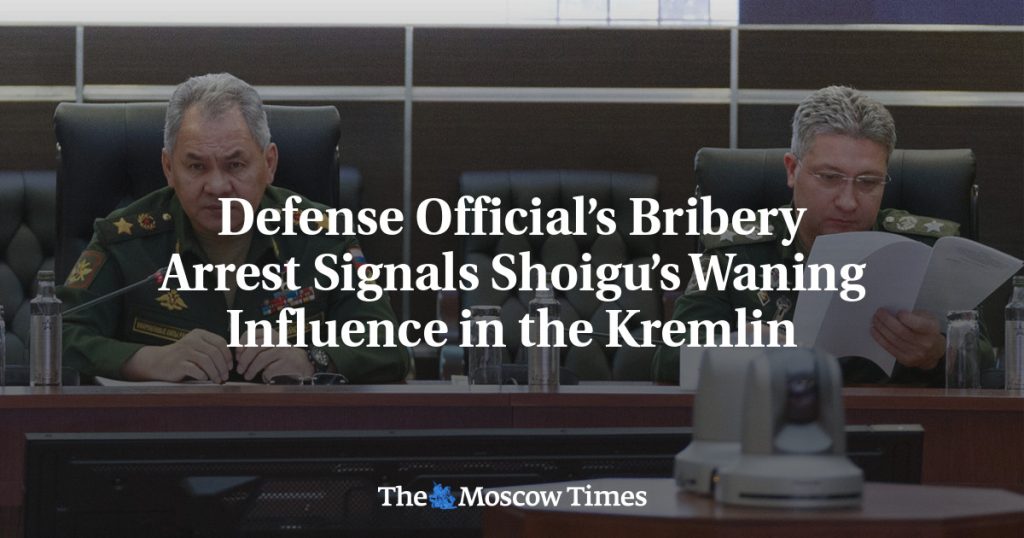The arrest of Timur Ivanov, a senior defense official, on bribery suspicions has raised concerns about the diminishing status of Defense Minister Sergei Shoigu and the increasing influence of the security services within the Russian government. Ivanov, who was a close ally of Shoigu, was detained on suspicion of accepting bribes and is seen as being involved in overseeing construction projects and military contracts. His arrest reflects a power struggle for resources and influence within Russia’s elite circles as Putin’s new presidential term begins.
Ivanov’s role in overseeing construction projects in Russian-occupied Ukrainian territories during the full-scale invasion and his close relationship with Shoigu have brought attention to his lavish lifestyle and questionable activities. His involvement in various construction projects in occupied areas, including a water pipeline and defense structures on the line of contact between Ukrainian and Russian forces, has raised concerns about corruption within the defense ministry. Despite his arrest, it is believed that Ivanov’s removal will not impact the Russian army’s ability to continue its invasion of Ukraine.
The timing of Ivanov’s arrest, just before Putin’s inauguration for a fifth presidential term, has raised questions about potential political motivations behind the move. Some sources suggest that the arrest may be more related to weakening Shoigu’s position within the government rather than solely targeting Ivanov for his actions. The arrest is expected to be used by the Federal Security Service (FSB) as a means to gather compromising information on the Defense Ministry, potentially including Shoigu himself, in an effort to maintain control and manageability within the government.
The luxurious lifestyle and corruption allegations surrounding Ivanov have been known to Russia’s security services and political elite for some time. His penchant for extravagant celebrations and connections to high-ranking officials and businessmen were well-documented, with investigations revealing the extent of his abuses in managing army property. Despite these known issues, Ivanov was not arrested earlier, suggesting that political motivations may have played a role in the timing of his detention.
The struggle for power and resources within Russia’s elite circles, as reflected in the arrest of Ivanov, underscores the complex dynamics at play in the country’s political landscape. As different factions vie for influence and control, arrests like Ivanov’s may be used as a tool to maintain manageability and prevent any single group from becoming too powerful. The implications of Ivanov’s arrest extend beyond just corruption allegations and may have broader implications for the balance of power within the Russian government as Putin enters another presidential term.


